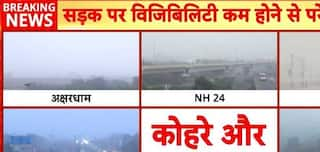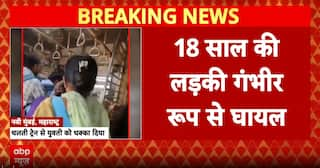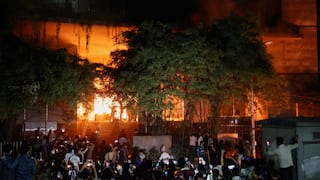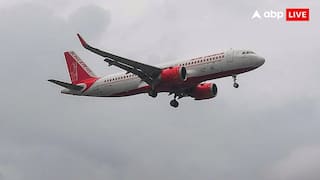Haryana Planning MSP On Stubble To Check Burning, Says CM Manohar Lal Khattar
CM Khattar said that the state government gives Rs 1,000 per acre to the farmers for not burning the crop residue, a move that has helped reduce stubble burning substantially in Haryana.

New Delhi: In a bid to check air pollution, the Haryana government is mulling minimum support price (MSP) on stubble so that the farmers sell their crop residue instead of burning it, Chief Minister Manohar Lal Khattar said on Wednesday.
Speaking at a press conference held on the completion of eight years of his government, Khattar said that Haryana is very serious about the issue of stubble burning.
“We have succeeded in putting a check on stubble burning with cooperation from farmers by providing financial help to them and making them aware of its harmful effects,” the chief minister said, adding, “To take it further, we are considering announcing an MSP on stubble and exploring the possibility of buying it from farmers and giving it to industries for their use.”
CM Khattar said that the state government gives Rs 1,000 per acre to the farmers for not burning the crop residue, a move that has helped reduce stubble burning substantially in Haryana. He further said that this amount helps the farmers to sell the crops to refineries and other industries.
According to studies, stubble burning remains a "significant contributor" to Delhi's unbreathable air in the months of October and November.
A study conducted by the Centre for Research on Energy and Clean Air (CREA) has shown that stubble burning is one of the major factors behind the deteriorating air quality in the national capital.
Meanwhile, Delhi recorded "very poor" air quality a day after Diwali after the residents flouted ban on firecrackers in many parts of the national capital.
However, the favourable meteorological conditions diluted the effect of the fireworks and stubble burning and the pollution level in Delhi was recorded lowest in the last seven years.
As per the data from Central Pollution Control Board (CPCB), the AQI in Delhi during last year’s Diwali was 382, 414 in 2020, 337 in 2019, 319 in 2017, and 431 in 2016.
The neighbouring cities of Ghaziabad (266), Noida (299), Greater Noida (272), Gurugram (292) and Faridabad (289) reported "poor" air quality.






































